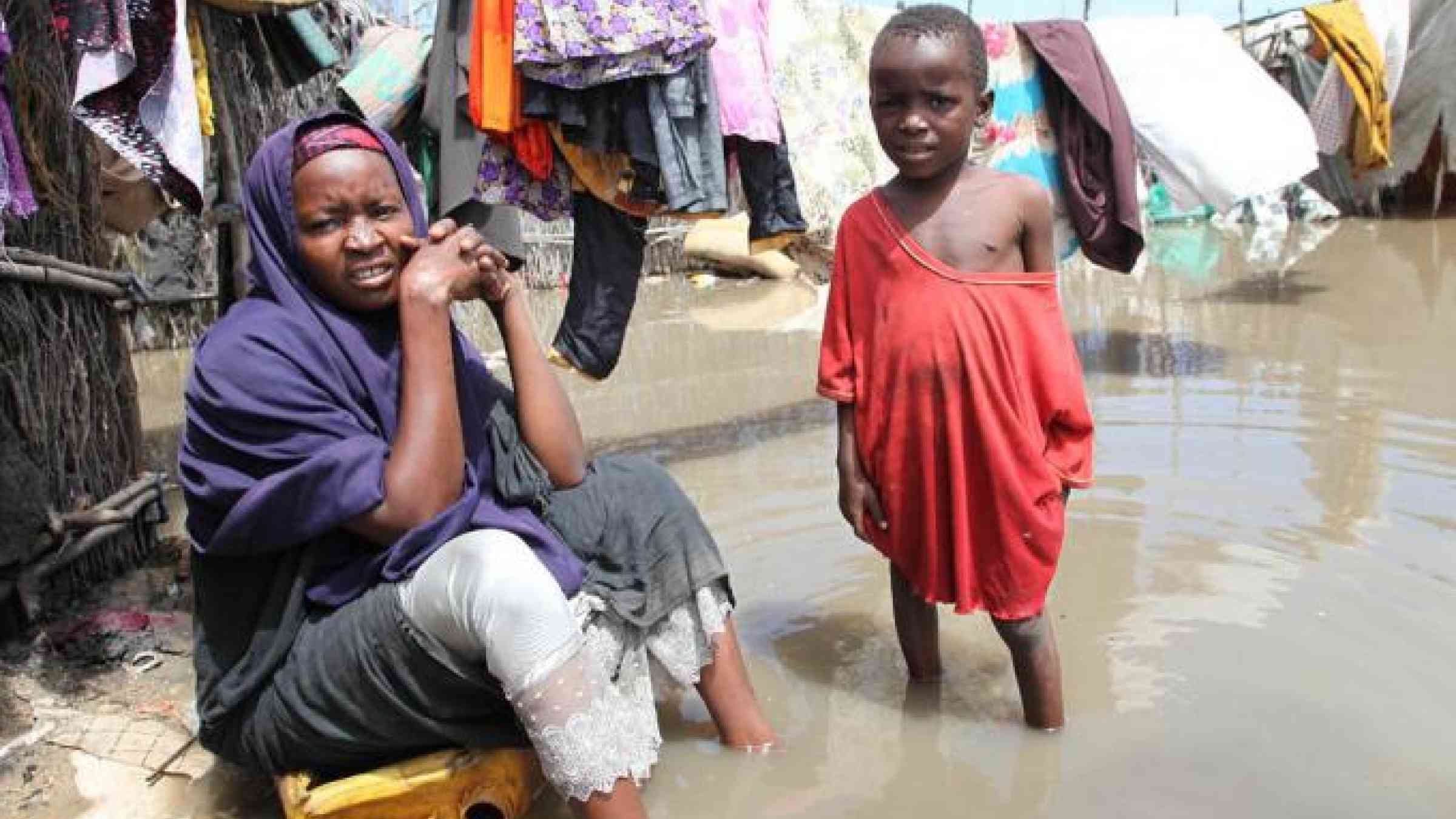Early warning means quick response to El Nino rains in Somalia

Mogadishu - Khadijo Amburre Nurre never imagined the day would come when she would have to sleep in a tiny tent with her five children. Silently, she sits cooking outside her patched up makeshift tent in the crowded backstreets of the Somali capital Mogadishu.
Her family were among thousands forced to flee their homes when heavy rains hit south central Somalia destroying homes and property and causing flash flooding and rivers to overflow their banks.
“We lost everything,” says Khadijo sadly remembering their home in Jambalul, Lower Shabelle region. “We don’t have food or clean drinking water and this tent is very cold at night. We are in desperate situation.”
These rains, which were particularly heavy in October and November, were associated with the predicted El Nino phenomenon, which re-occurs every seven to eight years and can have dramatic effects on the weather around the world.
This time, the El Nino rains were predicted early – UNICEF and its partners were able to prepare in advance for its possible effects, particularly for the vulnerable people such as the displaced, women and children.
“We are working on the assumption that between 500,000 and 1 million people could be affected,” says Jean-Michel Delmotte, UNICEF’s Chief of Field Office in Mogadishu. “We expect several months of nutrition and child protection challenges.
“UNICEF partners have been equipped with appropriate supplies which are already prepositioned in the 13 districts that are expected to be affected, he added.”
So far the floods caused by rains inside Somalia and the Ethiopian highlands have affected 140,000 people in Somalia so far.
UNICEF put a comprehensive plan in place, which included dissemination of flood awareness messages through radio, distribution of leaflets in schools and stabilizing riverbanks with sacks and sandbags. Hygiene kits and sanitation kits that had been prepositioned were distributed and preparations made to ensure children’s education continues.
“El Nino flooding programmes have started,” says Abdullahi Jama Hassan, the programmer manager for UNICEF’s partner, the Somali Public Health Professional Association (SOPHPA).
“We have done mass chlorination of water in three districts, where we targeted water supply hubs, shallow wells and water storage tanks in order to avoid contamination. We have also constructed new latrines in schools and health facilities.”
Activities to ensure children stay healthy have been stepped up including the teaching of home hygiene skills to mothers and the supply of micronutrient powder to undernourished children from six months to two years through the Infant and Young Child Feeding Programme.